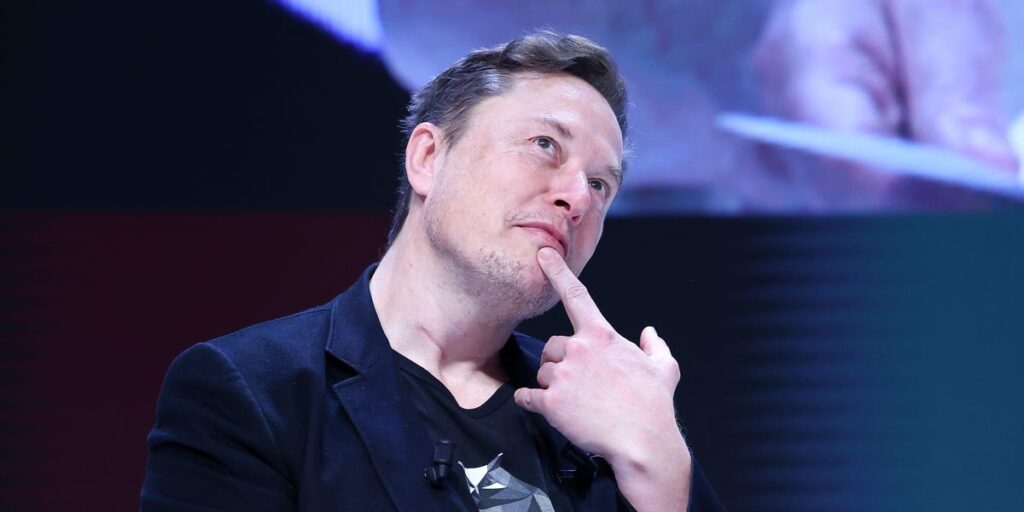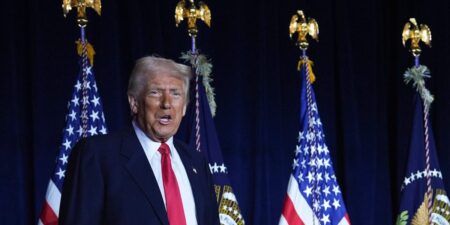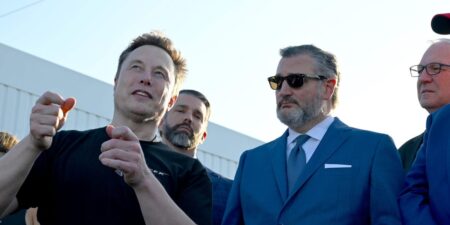- Elon Musk has been described as the leader of the “Department of Government Efficiency.”
- But his job in the White House is “unlisted,” according to a record seen by Business Insider.
- White House and DOGE representatives haven’t responded to questions about who runs DOGE.
Elon Musk officially works for the government now. But what, exactly, is his job? More precisely, what is his job title?
It’s a surprisingly hard question to answer. A White House record seen by Business Insider says his job is simply “unlisted.”
Despite having a White House access badge as of January 20, and being widely described as the leader of DOGE, the White House has not officially confirmed Musk’s title. His X profile describes him as “White House Tech Support.”
When Donald Trump folded Musk’s “Department of Government Efficiency” into the White House, he did it by rebranding the US Digital Service — an Obama-era effort to bring modern software development practices to the federal government — as the “US DOGE Service.” He also moved it under his chief of staff, Susie Wiles, and created a “temporary organization” that would enable the new USDS administrator to recruit people faster, without going through standard federal hiring procedures.
But the order didn’t say who the USDS administrator was. Nor did any of Trump’s statements that have designated leaders of various departments and offices. Ted Carstensen, who had been the deputy administrator of the USDS since last year, told staff on February 6 that it would be his last day.
“They’d better figure out his title,” said Richard Painter, a government ethics expert and persistent Trump critic. “The structure of this organization needs to be explained to the American people.”
In a January 27 report, the Congressional Research Service said that “a USDS administrator has not yet been named.” House Democrats also flagged in a letter to the leader of the Small Business Administration on February 3 that they have seen “no formal communications from the White House naming Elon Musk as Administrator.”
But the presumption that Musk leads the office or has some defined official authority seems widespread. Senator Elizabeth Warren addressed a letter to him as “Administrator” of the “Department of Government Efficiency.” Earlier this week, a Texas state official published a press release praising “DOGE Chairman Elon Musk” for taking steps to shut down USAID.
Musk, the White House Press Office and Katie Miller, described by Trump as a DOGE advisor, didn’t respond to inquiries about who leads the USDS. The White House has said Musk is a “special government employee,” which means he can only work for 130 days per year. But that’s a classification, not a title.
Musk is known for being loose with titles. At Tesla, where he was long the CEO, he gave himself the title of “technoking” in 2021. At X, previously known as Twitter, his title was “chief twit.” “No idea who the CEO is,” he said in a 2022 post.
Even Tesla doesn’t seem to be sure what Musk’s government role is. In its January 29 annual report, Tesla said Musk has management roles at several companies and “is involved in other ventures and with the Department of Government Efficiency.”
The ambiguity extends beyond Musk himself. Some of the techies linked to Musk who have gone to work at the Office of Personnel Management and agencies like the Treasury Department have nebulous titles like “senior advisor” and “expert.”
“I think that this is an intentional strategy to create confusion as to whether he actually has a formal title or whether he is just a part-time unpaid advisor to the president,” John Pelissero, the director of government ethics at the Markkula Center for Applied Ethics at Santa Clara University, said. “If you are clear that if he is the administrator of DOGE, then he has to comply with various rules that are in place that apply to other executive branch employees.”
Painter, the ethics lawyer, suggested the White House may be trying to keep Musk’s financial disclosures out of the public eye. The executive order that renamed USDS also moved it out of the Office of Management and Budget and into the White House Office, a part of the executive branch that is harder for Congress and others to scrutinize because of executive privilege.
Read the full article here
















